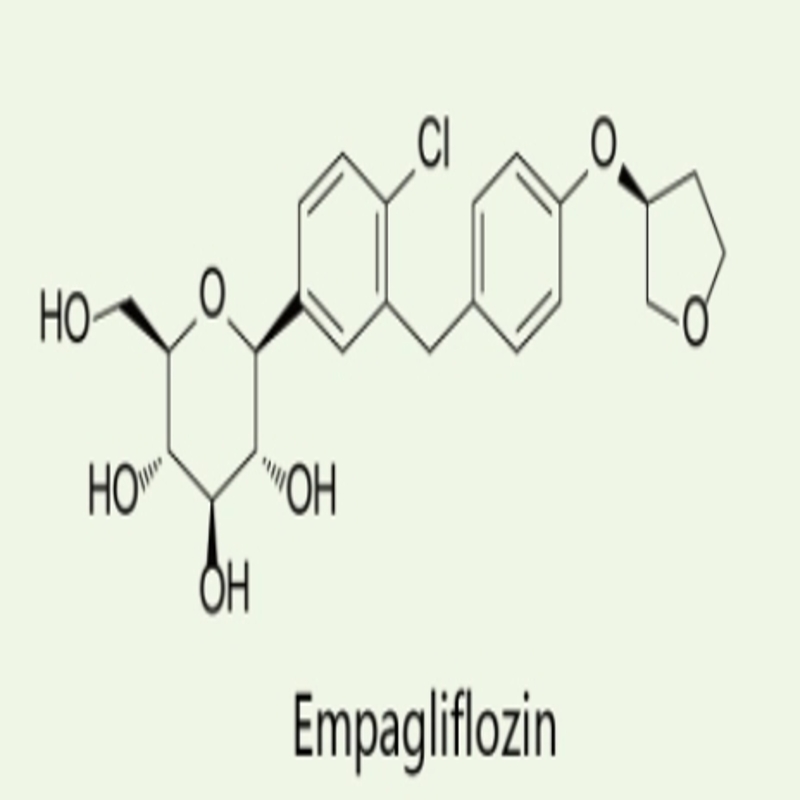-
Categories
-
Pharmaceutical Intermediates
-
Active Pharmaceutical Ingredients
-
Food Additives
- Industrial Coatings
- Agrochemicals
- Dyes and Pigments
- Surfactant
- Flavors and Fragrances
- Chemical Reagents
- Catalyst and Auxiliary
- Natural Products
- Inorganic Chemistry
-
Organic Chemistry
-
Biochemical Engineering
- Analytical Chemistry
- Cosmetic Ingredient
-
Pharmaceutical Intermediates
Promotion
ECHEMI Mall
Wholesale
Weekly Price
Exhibition
News
-
Trade Service
The International Diabetes Federation (IDF) reports that 415 million people worldwide currently have diabetes, aged between 20 and 79
.
Metformin is the first-line treatment for type 2 diabetes (non-insulin-dependent diabetes) and is commonly prescribed worldwide
.
The American Diabetes Association (ADA) recommends metformin for patients diagnosed with type 2 diabetes and recommends that glycated hemoglobin (HbA1c) should be maintained at or around
7%.
The main classes of oral antidiabetic drugs include biguanides, sulfonylureas, metronidazoles, thiazolidinediones (TZD), dipeptidyl peptidase 4 (DPP-4) inhibitors, sodium-glucose cotransporter (SGLT-2) inhibitors, and α-glucosidase inhibitors
.
If HbA1C levels rise to 7.
5% during medication, or if initial HbA1C is ≥ 9%, a combination of two oral agents or insulin may be considered
.
GLP-1 agonists are recommended as an add-on therapy for patients who do not achieve the A1C target after 3 months of metformin therapy
even before starting insulin therapy.
However, most patients initially respond to sulfonylureas or metformin, but these drugs later lose their effectiveness
over time.
There are no comparable long-term data
for α-glucosidase inhibitors, methylglitazone, and thiazolidinediones.
Insulin therapy is not only expensive, but also not preferred
due to poor patient adherence to parenteral use.
In 2014, the Indian Medical Products Regulatory Authority (DCGI) approved hydroxychloroquine for the management of type 2 diabetes mellitus (T2DM), plus diet and exercise aids, to improve glycemic control in the combination of sulfonylurea and metformin in patients with type 2 diabetes, and even received clinical practice recommendations
from RSSDI (Indian Association for Research and Research in Diabetes).
Therefore, studies have evaluated the safety and efficacy
of hydroxychloroquine as an add-on treatment to oral administration of two hypoglycemic agents in people with type 2 diabetes.
This is a double-blind, placebo-controlled, parallel-group study of 304 participants with type 2 diabetes mellitus (T2DM) with inadequate glycaemic control who were given two oral antidiabetic drugs (glimepiride 4 mg and metformin 500 mg) at baseline, randomly assigned to hydroxychloroquine (HCQ) 200 mg, 300 mg, 400 mg once daily (OD) or placebo
.
The dose
of hydroxychloroquine was selected according to the participant's body weight.
The primary endpoint was change
in glycosylated hemoglobin (HbA1c) from baseline to week 12.
Secondary endpoints were changes in fasting blood glucose (FPG), postprandial blood glucose (PPG), body weight, and any adverse effects, including no hypoglycaemic events, and the
percentage change in HbA1c < 7.
0% and >6.
5% after 12 weeks of treatment.
At follow-up, 400 mg once daily was again divided into 200 mg twice daily (BD) to investigate the effect on the tolerance curve for a total of 12 weeks
.
Hydroxychloroquine was found to be significantly associated with a decrease in HbA1c levels (7-8.
5%), with reductions in HbA1c levels of -0.
78%, -0.
91%, and 1.
2% in the OD groups of hydroxychloroquine 200 mg, 300 mg, and 400 mg, respectively, compared with 0.
13% (P<0.
005)
for placebo.
FPG and PPG decreased by -25 to -38 mg/dl and 34-53 mg/dl
, respectively.
HCQ also experienced weight loss
in all groups.
Hypoglycemia
occurred only in the 300 mg (1.
2%) and 400 mg (2.
1%) HCQ groups.
It has been observed that in patients with mild gastrointestinal disorders, the glycemic control effect of HCQ 400 mg taking 200 mg BD is maintained and symptoms are significantly relieved
.
Changes in HbA1c from baseline to week 12 in subjects with type 2 diabetes taking metformin and sulfonylurea after the addition of hydroxychloroquine or placebo
In conclusion, hydroxychloroquine plus sulfonylureas and metformin have been found to significantly improve glycaemic control in patients with T2DM, and their safety/tolerability is good, except for gastrointestinal disorders, which are more common
at 400 mg.
This can be avoided with the use of 200 mg of BID (2 times a day) without affecting the efficacy
.
References: Chakravarti HN, Nag A.
Efficacy and safety of hydroxychloroquine as add-on therapy in uncontrolled type 2 diabetes patients who were using two oral antidiabetic drugs.
J Endocrinol Invest.
2021 Mar; 44(3):481-492.
doi: 10.
1007/s40618-020-01330-5.
Epub 2020 Jun 27.
PMID: 32594451; PMCID: PMC7320244.







